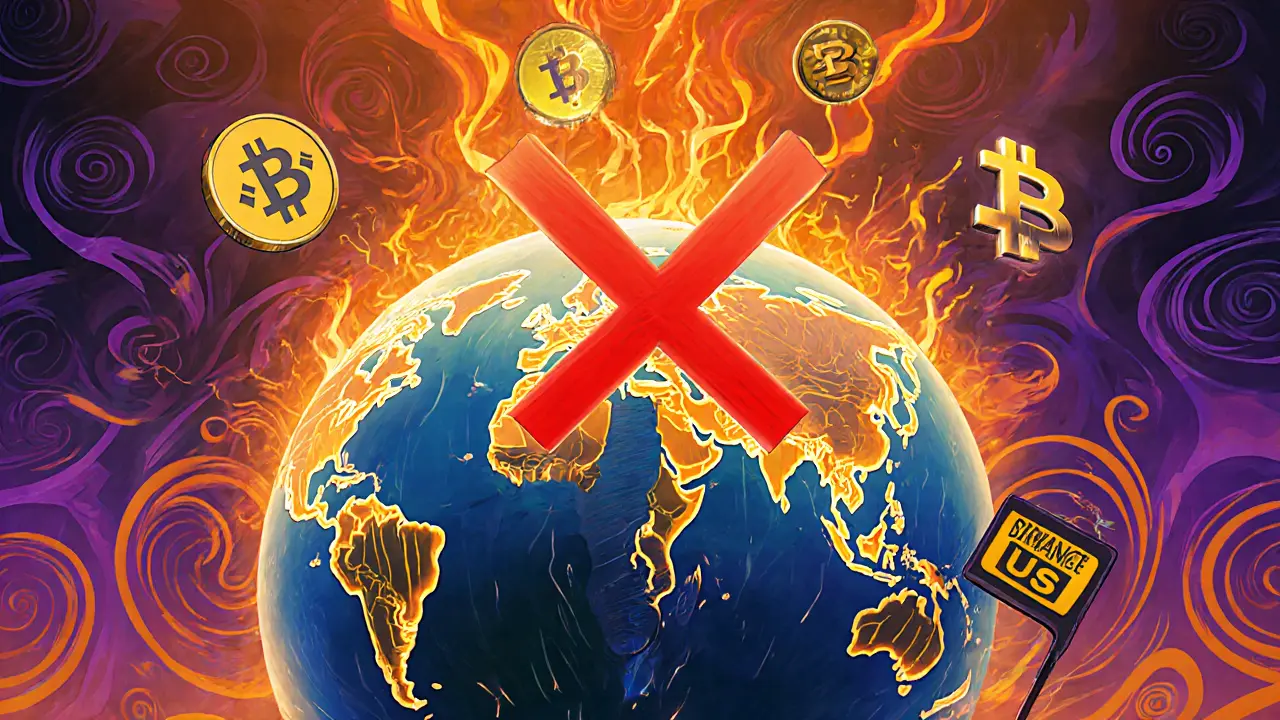Cryptocurrency Exchange Map: Where to Trade, Avoid, and Understand Global Rules
When you look at a cryptocurrency exchange map, a visual guide showing where crypto trading is legal, restricted, or blocked across countries. Also known as a crypto regulation map, it’s not just about where you can buy Bitcoin—it’s about where your money is safe, taxed, or at risk of being frozen. This isn’t a fantasy map from a game. Real governments are drawing lines: some treat crypto like cash, others ban it outright, and a few let you trade but slap on heavy taxes or compliance traps.
Look at the posts below, and you’ll see the same patterns over and over. Countries like Qatar ban all crypto trading but allow tokenized real estate. India doesn’t ban wallets but makes them nearly useless with 30% taxes and murky rules. The EU forces exchanges to follow MiCA and the Travel Rule, while the U.S. uses OFAC to freeze wallets tied to sanctioned entities. These aren’t random policies—they’re building blocks of a global crypto legal status, the official stance each country takes on digital assets. And if you’re trading on a platform like JulSwap or Koinde without checking where you live, you’re gambling with your funds.
Not all exchanges are created equal. Some, like Uniswap v3, are open to anyone with an internet connection. Others, like Saros Finance, are built on specific blockchains and only make sense if you’re already deep in DeFi. Then there are the dead ones—JulSwap, LakeViewMeta, Electric Cash—platforms that vanished without a trace. A decentralized exchange, a peer-to-peer crypto trading platform without a central company controlling it isn’t automatically safe. It’s only as strong as its liquidity, team, and community. And if your country bans crypto, even the best DEX won’t help if your bank freezes your account.
What you’ll find here isn’t a list of links. It’s a real-world guide to where crypto exchanges work, where they’re banned, and which ones are scams hiding behind flashy names. You’ll learn why a Mexican user can trade legally but pay hidden fees, why an Indian trader should avoid WazirX, and why a Qatar resident can’t touch Bitcoin but can own tokenized gold. This isn’t theory. It’s what’s happening now—on the ground, in your country, in your wallet.
Crypto Exchange Availability by Region Worldwide: Where You Can and Can't Trade
Crypto exchange availability depends on your country's laws. Binance is blocked in the U.S., while Ukraine and Vietnam lead in adoption. Learn where you can trade, why exchanges split by region, and what alternatives exist.
